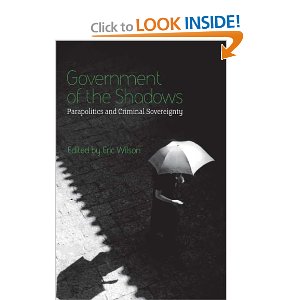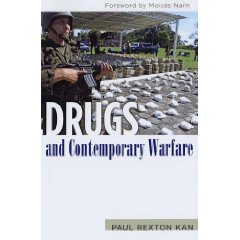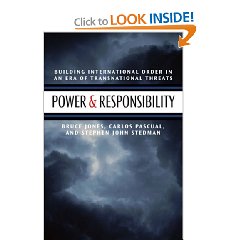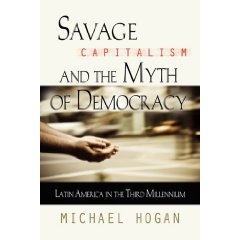
Review by Guido G. Preparata (Rome, Italy)
5.0 out of 5 stars Innovative and courageous social science
June 8, 2009
Eric Wilson and Tim Lindsey (eds)
In this recent volume by Pluto Press, Eric Wilson (Monash University) has assembled an all-stars team of politologists with the objective of changing the face of social analysis. This effort stems from the urgency to redefine the conceptual spaces within which we perforce corral our daily experience as citizens of what has become, in fact, an international polity of overwhelming, as well as highly disquieting, complexity. This is not at all to say, however, that the project limits itself to adding “epicycles,” as it were, to the Ptolemaic vulgate of British constitutionalism–i.e., the standard model of the “Liberal State”–which has imposed itself as the sole lens through which one is to contemplate the social dynamics for every single political reality of this world.
Government of the Shadows (GOS) represents in this regard an honest and brave swerve away from the mainstream in two fundamental respects.
First, it wishes to rethink political science entirely, by rejecting definitively the puritanical dichotomization of society into its predominant and “clean” edifice versus the latter's more or less corrupt “covert netherworld” (p. 228)–the prescriptive implication of conventional analysis being that delinquents need only be jailed, and their activities repressed, as the given regime is in the meantime steered (hopefully) toward the eventual and complete assimilation of Liberal institutions, which will naturally cure it of the criminal deviancy.
Second, and no less important, this project seeks to re-endow the movement for social justice of a unity of intent and of thought, which has lately been shattered by an excessive methodological preoccupation with multiplicity and diversity. By denouncing with reason and cogency the inequities suffered by a majority of innocents–throughout our recent history and all over the world–at the hands of identifiable, responsible parties within the power apparatuses in connivance with the world's mafias, and by ordering all such phenomenological mass into theory, this book, as a collective endeavor, acts as a vigorous reminder that realistic sociological analysis is also very much an instrument of pacific dissent. In this sense, GOS stands as a first and decisive installment of a modern anti-oligarchic theory.
To compass the reality of modern power games in its full spectrum, GOS innovates by proposing the new discipline of “parapolitics,” defined in Robert Cribb's introductory as “the study of criminal sovereignty, of criminals and sovereigns behaving as criminals in a systematic way” (p. 8).








